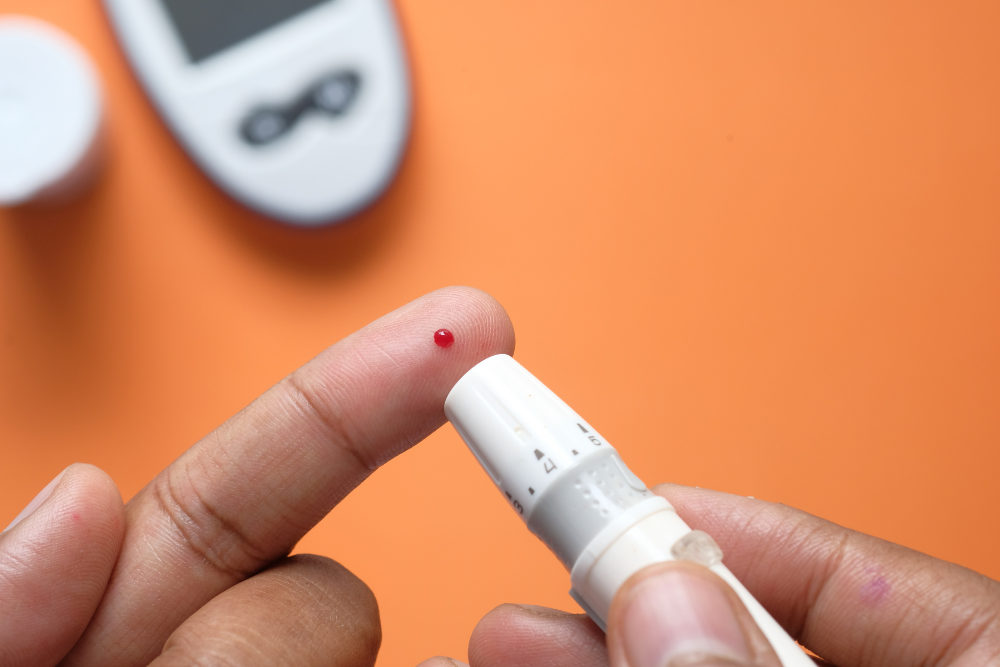4 Early Warning Signs of Diabetes

Do you have diabetes?
The answer may not be as simple as you think. According to the CDC, nearly a quarter of American adults living with diabetes are actually undiagnosed. That’s more than 8.5 million people who have no idea they’re living with a chronic and potentially deadly disease.
One reason for this problem is that diabetes can be easy to overlook, especially in the early stages of type 2 diabetes. Warning signs are subtle and often develop slowly, leading many patients to feel surprised when they finally receive a diagnosis. Unfortunately, those mild early symptoms can still cause lasting damage that increase your risk of future complications.
Which is why early diagnosis is so important. Whether you’re at risk of diabetes or have just been feeling a little off, here are 4 warning signs that should prompt a call to your doctor.
Common Warning Signs of Diabetes
- Frequent bathroom breaks.
Patients with diabetes have trouble filtering sugar (glucose) from their blood. As blood sugar levels rise, your kidneys draw excess fluids from your tissues and increase urine production to dilute and expel the extra glucose. This can lead to more frequent trips to the toilet, especially at night. - You’re extremely thirsty.
All those trips to the toilet can leave you feeling extra thirsty. As your kidneys draw water from your body to create more urine, your brain sends a signal that you need to drink more water to stay hydrated. Frequent urination also expels valuable electrolytes from the body, which can cause your brain to think you’re more dehydrated than you actually are.
While drinking more water is never a bad thing, an unquenchable thirst is always cause for concern. If you can’t seem to get enough water or have sudden and severe dry mouth, a trip to the doctor may be in order. - Sudden and severe fatigue.
When your blood sugar is high, your body has to work harder than normal to get rid of the excess sugar. Much like the fatigue that comes with fighting a fever, you may start to feel extremely tired and weak as your body uses its available energy to stabilize your sugar levels. Fatigue can also be caused by dehydration (a common result of frequent urination) and because your body isn’t getting the fuel it needs from your food. - Blurred vision.
High blood sugar levels can change fluid levels in the eye or cause the eye lens to swell, which causes temporary changes in your vision. Patients with high blood sugar may experience blurry vision for days or even weeks until their glucose levels return to normal.
Diabetes is a chronic and incurable condition, but early diagnosis and treatment can help patients live a long and healthy life. If you have one or more of these warning signs, speak to your doctor about undergoing a fast and simple diabetes test. Once diagnosed, your doctor can help you develop a treatment plan to manage your condition and improve your quality of life.
Search our Blog
Recent Posts
Low-Carb Snacks for Diabetic Kids: Tasty, Fun, and Blood Sugar-Friendly
Finding the right snacks for kids with Type 1 diabetes can feel like a challenge. You want something delicious, but also something that won’t send their blood sugar on a rollercoaster ride. The key? Low-carb, [...]
Measles Guide for Parents: What You Need to Know
Recent measles outbreaks have many parents on high alert, and with good reason—measles is one of the most contagious viruses in the world. While it was once considered a routine childhood illness, modern medicine has [...]
Everything You Need to Know About the Fairhope Arts & Crafts Festival
In Fairhope, it doesn’t really feel like spring until we’re counting down the days to our favorite annual springtime event: the Fairhope Arts and Crafts Festival. Now in its 73rd year, this downtown celebration is [...]
The Facts on Fifth Disease: What Parents Need to Know
If your child has come home with rosy cheeks that seem more like a rash than a healthy glow, it might not just be the weather. Fifth disease, also known as “slapped cheek syndrome,” is [...]
Flu FAQs for Parents
Flu season is here, and if you’re a parent, you know how quickly it can turn your home into a germ war zone. We’ve seen an uptick in flu cases recently at Urgent Care of [...]
Mardi Gras 2025: Fairhope Festivities And Fun For All
It’s time to let the good times roll! The 2025 Daphne and Fairhope Mardi Gras season starts rolling soon with a full schedule of parades, balls, and festive celebrations along the Eastern Shore. It’s one [...]

